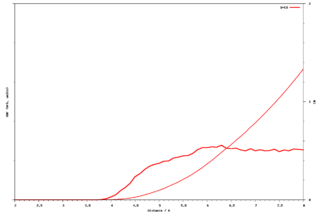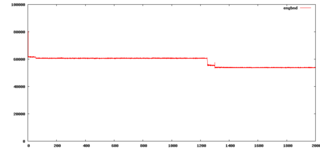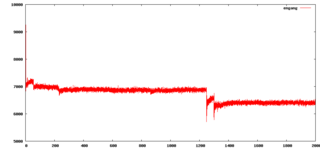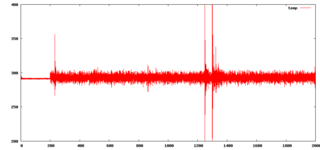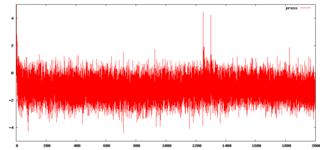Elektrood-05-nvt: Difference between revisions
From Intelligent Materials and Systems Lab
No edit summary |
(→RDF) |
||
| Line 31: | Line 31: | ||
= RDF = | = RDF = | ||
X is the mass center of the N-C-N-C-C ring of the cation. | |||
X-B (cation-anion): | |||
[[Image:elektrood-2x1-nvt-RDF-X-B.png|320px]] | |||
X-F (cation-anion): | |||
[[Image:elektrood-2x1-nvt-RDF-X-F.png|320px]] | |||
B-C1 (anion-cation): | |||
[[Image:elektrood-2x1-nvt-RDF-B-C1.png|320px]] | |||
X-C (cation-carbon): | |||
[[Image:elektrood-2x1-nvt-RDF-X-C.png|320px]] | |||
B-C (anion-carbon): | |||
[[Image:elektrood-2x1-nvt-RDF-B-C.png|320px]] | |||
B-C8 (anion-Teflon): | |||
[[Image:elektrood-2x1-nvt-RDF-B-C8.png|320px]] | |||
== Coordination sphere radii == | == Coordination sphere radii == | ||
Revision as of 07:52, 4 May 2009
System Description
6% Polymer (2 chain) % EMI-BF4 (132 ion pairs) % Carbon (52 platelets) Simulation conditions:
Simulation conditions
NVT Simulation in a 40Å^3 box. No electric field applied.
Simulation statistics
koguenergia:
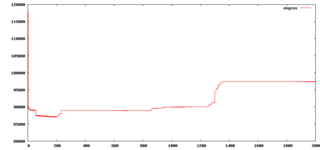 Konfiguratsioonienergia:
Konfiguratsioonienergia:
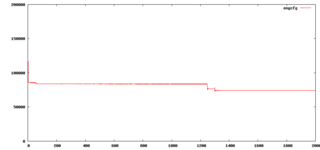
Dihedraalienergia:
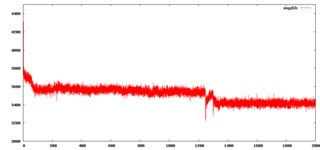 Coulombi energia:
Coulombi energia:
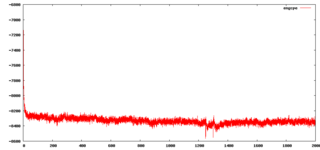
RDF
X is the mass center of the N-C-N-C-C ring of the cation.
X-B (cation-anion):
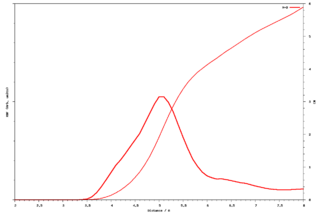 X-F (cation-anion):
X-F (cation-anion):
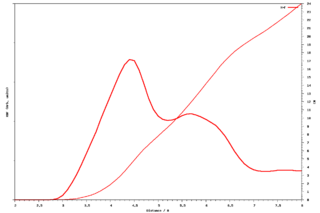
B-C1 (anion-cation):
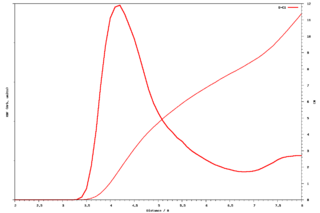 X-C (cation-carbon):
X-C (cation-carbon):
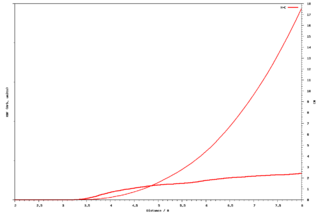
B-C (anion-carbon):
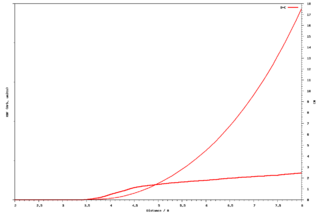 B-C8 (anion-Teflon):
B-C8 (anion-Teflon):
